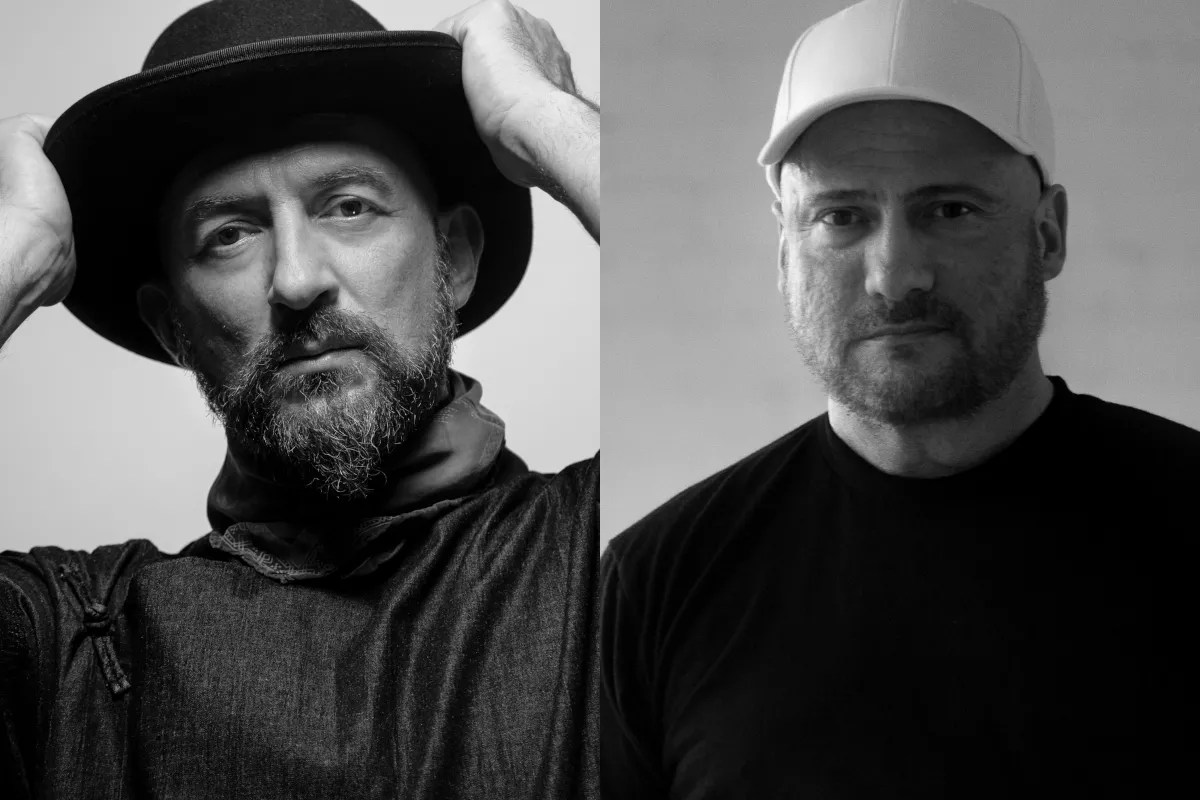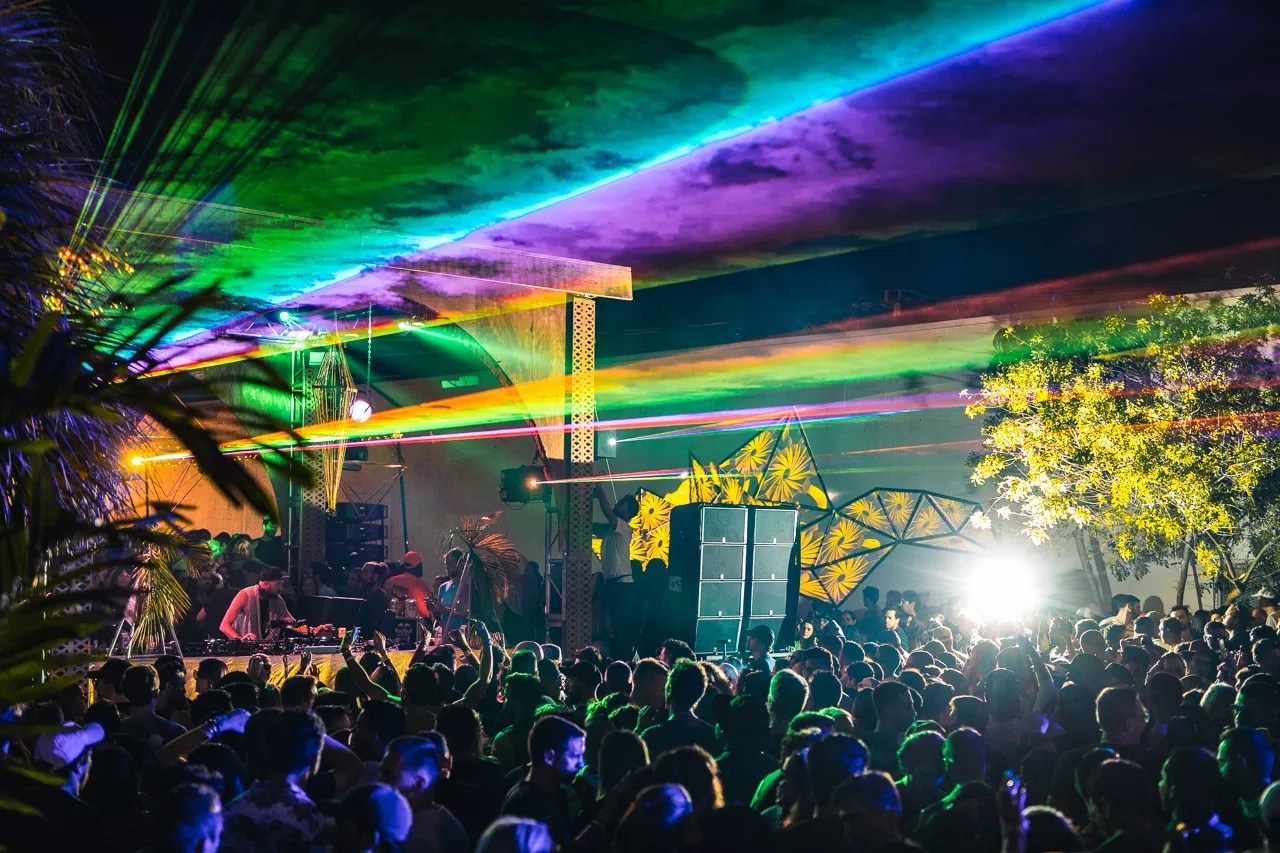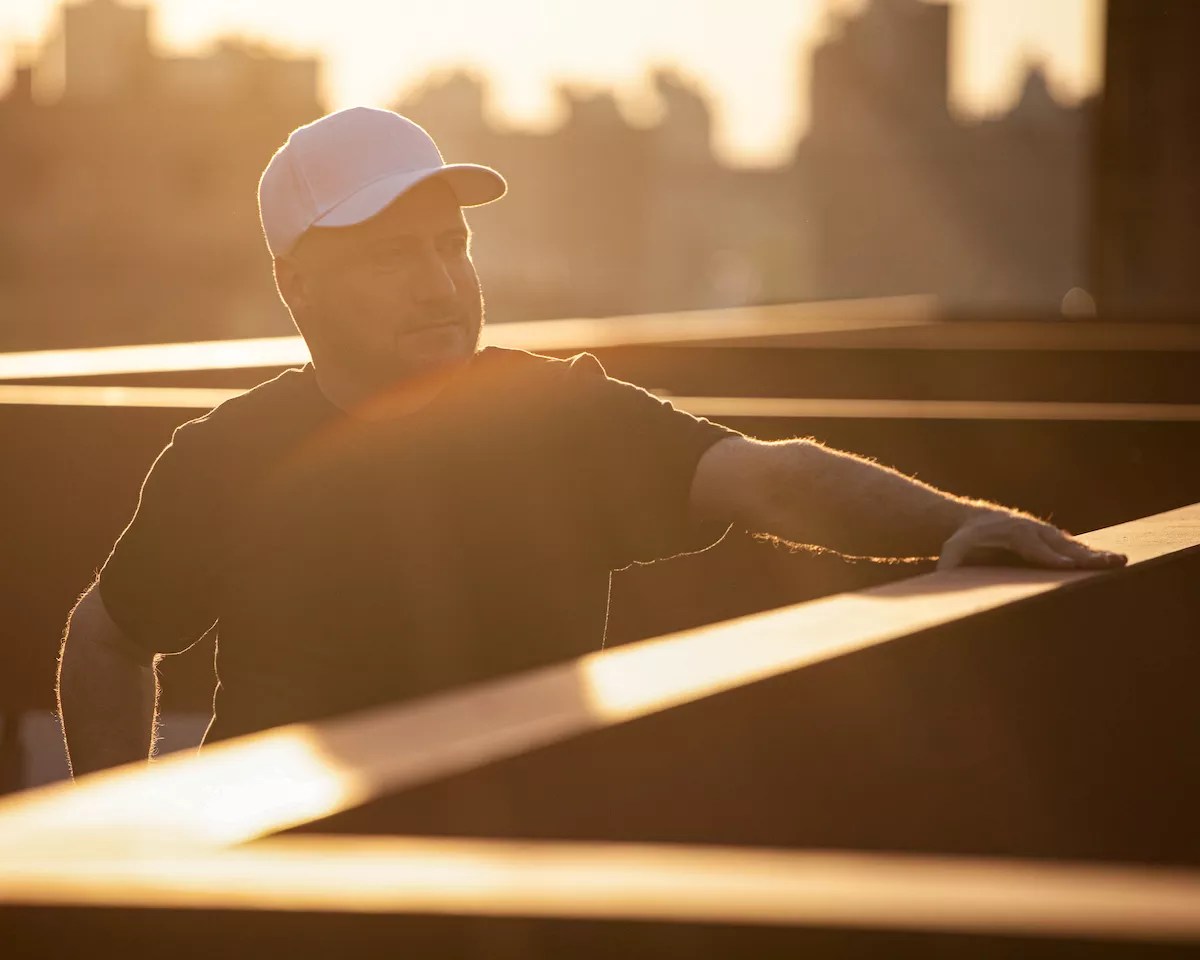
Photos by Karim Tabar/courtesy of the artist

Audio By Carbonatix
Legends in the scene can appear enigmatic – as if their stardom were effortless and uncultivated. Yet, when the mystical British DJ/producer Damian Lazarus cemented his craft and created the 24-hour party Get Lost in Miami 15 years ago, it wasn’t built in a vacuum. Instead, Get Lost was an accumulation of hundreds of hours exploring the city’s dance-music renaissance and witnessing firsthand the advent of marathon raves in the late 1990s and the new millennium.
As a young journalist traveling to Miami to cover a story, Lazarus first set foot in Miami during Winter Music Conference (WMC) in 1997. During a night of party-hopping, he stumbled upon the king of house music, Danny Tenaglia, spinning at Groove Jet. It was one of those indescribable, “Oh, you just had to be there” accounts. Captivated and mesmerized by Tenaglia’s talent, Lazarus felt he was witnessing history.
With Get Lost, Lazarus hoped to pay homage to those marathon-crazed days. With more than 70 acts performing at Factory Town in Hialeah, this year’s event celebrates 15 years on the scene, with help from legends Carl Craig and, of course, Tenaglia.
Recently, New Times got Lazarus and Tenaglia together over Zoom to re-examine the DNA of Get Lost, from its roots in early rave culture spurred by Groove Jet to the inception of Club Space.
Damian Lazarus: My very first experience at WMC was in ’97. I was assistant editor and music editor at Dazed & Confused magazine, and it was the year India Del Sol was launching their first album with a party at the National. It was my job to interview India for the magazine. I took a photographer, Deedra Callahan, and we went with DJ Paulette – she organized the trip.
The following morning – we’d stayed up all night – I found myself at Groove Jet. It was the year drum ‘n bass had taken over the universe, and coming from London, it was a big sound, a big thing for me. The first thing I remember when I walked in was seeing Goldie in the back of the room just going crazy. You, Danny, were in the other room playing, but people were screaming, and a bunch of people were going into your room, and I remember seeing you. You were playing the most incredible music. It was super tribal, super trippy, around 9 in the morning.
What year did you start Groove Jet? You made such an incurable imprint on my experience in Miami.
Danny Tenaglia: I think it was 1992 or ’93. It pretty much lasted until Space opened in 2000.
Lazarus: Did you decide when the show would finish?
Tenaglia: I would never want to stop. I would wait until staff told me, “You have to stop because the police are here,” or “We have to get ready for another party.” But it became known that over the years, what it turned it to be was [WMC was more] of a music-industry party. The guest list was getting loaded, and [the party] was hosted by Yesterday & Today Records on the Beach and Tribal [Records], which eventually became Twisted. We had labels like Atlantic calling to get on the list. And before you know it, Goldie, Mood II Swing, Sasha and Digweed, Farley and Heller, Deep Dish. No matter where you looked, there were label heads and everyone I had the pleasure to meet over the years.
It’s great for me to hear your story; it’s uplifting to me.
Lazarus: At that time, would these shows during WMC go through all night to the morning and into the afternoon?
Tenaglia: No, that came with Space. Legally, Groove Jet wasn’t supposed to stay open that late. I know because I started early often, I think the latest we would go was 9 a.m. But when Space came in, they had the 24-hour operating license with liquor. I was the first DJ there.
Lazarus: My memory escapes me sometimes, but I believe my first Miami experience was ’97 and then again in 2001 when I came with my best friend and current manager. We came to see you at the old Space. I hadn’t experienced you on the microphone. You were giving shoutouts. I recall you announced you were going to play a bunch of remixes you made in the early ’90s.
Seeing you on those two occasions made such an important statement to what it means to play in Miami, because coming from the UK, it seems daunting to imagine these huge dance-music divergences of business and fun and all the important people in the scene together – and me, a nobody, coming in from London. Seeing the amount of love and affection people were giving you helped give me an early key to the door of what it means to have a party in Miami.
What different steps did you take to make sure your Miami performances [were on par] with your tour?

Get Lost returns with a 24-hour bash at Factory Town.
Photo courtesy of Crosstown Rebels
Tenaglia: I considered myself the host of the party. You must remember the first WMC was in 1985, which I had just missed. I started working at a bar in South Miami called Cheers. It was predominantly a gay club, but when WMC would come around, we would get everybody because we had a showcase and had the late licenses no one else had.
Back in those days, it was more of an industry [gathering]. It felt like I was hosting an industry party and announcing the acts. By the time we went to Groove Jet, I’d met so many people that were pretty much on my way to my remix career. I started to meet people throughout my travels, a lot of European DJs who would give me music. Now, everyone was there, and you could see the love everyone was feeling, and you could tell because we’re DJs, we want to know what song that is. I would just go, “Everybody, this track you’re listening to is by Ralph Falcon and Oscar G.” Sometimes I would type the name of the track onto an LED screen and just let it scroll.
Lazarus: Had you had previous experience hosting a party prior to Miami?
Tenaglia: I would say where I got that feeling from was working five days a week at a roller disco in Brooklyn. That was like, 1980, ’83, and you would have to go on the mike and say, “This next track is by Couples Only,” while also being on the lookout for an accident.”
Lazarus: It was around until 2001, 2002 that I was [picking up] as a DJ in the UK, and it wasn’t until 2003, 2004 that I was invited to play in Miami. That was through my then-agent, and we had a party at the Fairwinds. The same year, Chris Milo [DJ Three] invited me to play his party. That was my first experience. By the following year, 2005, you stopped your parties at Space, right?
Tenaglia: Yeah.
Lazarus: Having been [at Space] in 2003, 2004, and not having Danny Tenaglia hosting his parties for the industry, I was looking around for something similar, but there wasn’t anything. That’s why I started Get Lost. It started at 5 a.m. in Studio A, two doors down from Space. I wanted a place where all my friends and [people] in the industry would come together after their shows, plus the most weirded-out freakazoids in Miami, and have a trippy afterparty that started at 5 a.m. and ended around 1 in the afternoon.
Do you think there’s an opportunity to rebuild Miami Music Week [and] WMC? Do you think it would ever return to its full glory of celebrating dance music?”
Tenaglia: Well, we’re almost 40 years into it. Everything has changed. It’s a whole new ballgame out there. I wasn’t even playing CDs when it first started. It was always just vinyl.
It’s relative to the parties in New York, because I was associated with so many of them: Twilo, Tunnel, Limelight, Vinyl, where the mentality went from being rhythmic resident DJs [who brought] the concept of a rave into a nightclub. It was just three DJs in the main room and two DJs in the B room – just as many as you could fit onto a flyer to make it exciting. But that changed once the residences stopped. I was one of the last resident DJs in a New York club. When Vinyl closed in 2004, no one could say they had a weekly residency.

Damian Lazarus got the idea for Get Lost after watching Danny Tenaglia spin during Winter Music Conference.
Photo courtesy of the artist
Lazarus: Where are you at musically? You said for your birthday [March 7], you spent it checking out new music. Are you feeling as passionate about new music as you’ve ever been?”
Tenaglia: I got to tell you, my head is all over the place with what I want to [come out] when playing a show. I don’t think you can deny my history and all that has affected me from pre-disco to the birth of disco. Making records have become extremely nonlucrative for me – it costs me money. Thank God for a DJ career.
But the taste I have in my mouth for recording studios and making music – I still have that fire in me. What keeps me excited and interested is somehow incorporating that knowledge into my DJ sets. It’s the reason I love using Traktor – because I go through a lot of masters and versions of songs and get certain parts and incorporate them into a lot of great new music that’s out there.
Lazarus: For the readers, I’ve heard of the legend of Tenaglia, but what can they expect to hear from your 9-p.m.-to-midnight set on the Saturday night of Get Lost?
Tenaglia: I would say it’s modern with a classic approach. I love playing house and deep house; that’s my roots. But I’ve progressed and embraced the changes. I love it. I still like to say the roots of house and dance music, just giving people the element of surprise. I don’t want to sound like a DJ who Beatport shops, and there isn’t a journey or flow.
Lazarus: About ten years ago, I was doing a rebel rave party in New York at Pacha, and the guest DJs with me were Seth Troxler and Jamie Jones. You arrived for the last couple of hours and invited me and my gang to come to your house. You opened your house and said, “You could bring 20 or 30 of your closest people and feel free to come.” You asked Seth and me to play for you in your club room. We were both very nervous, but I wanted to say you were the most incredible host to me that night, and I’m very much looking forward to hosting you at Get Lost.
Tenaglia: I appreciate it so much, Damian. It’s going on for 47 years, working in a small pub in Williamsburg, Brooklyn, in 1976. I never turned back.
This interview was edited for length and clarity.
Get Lost Miami. 5 a.m. Saturday, March 26, at Factory Town, 4800 NW 37th Ave., Hialeah. Tickets cost $108.40 via dice.fm.